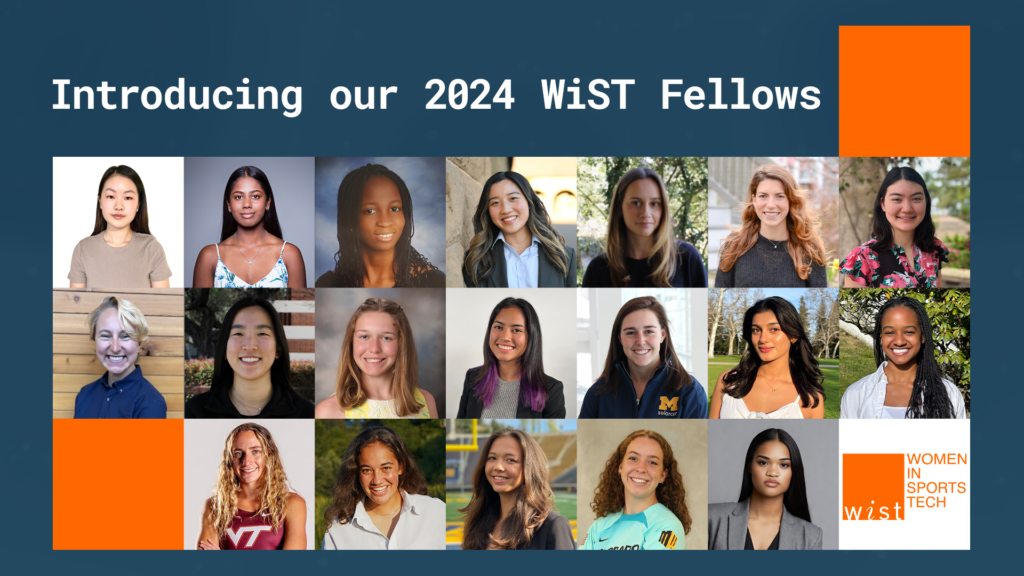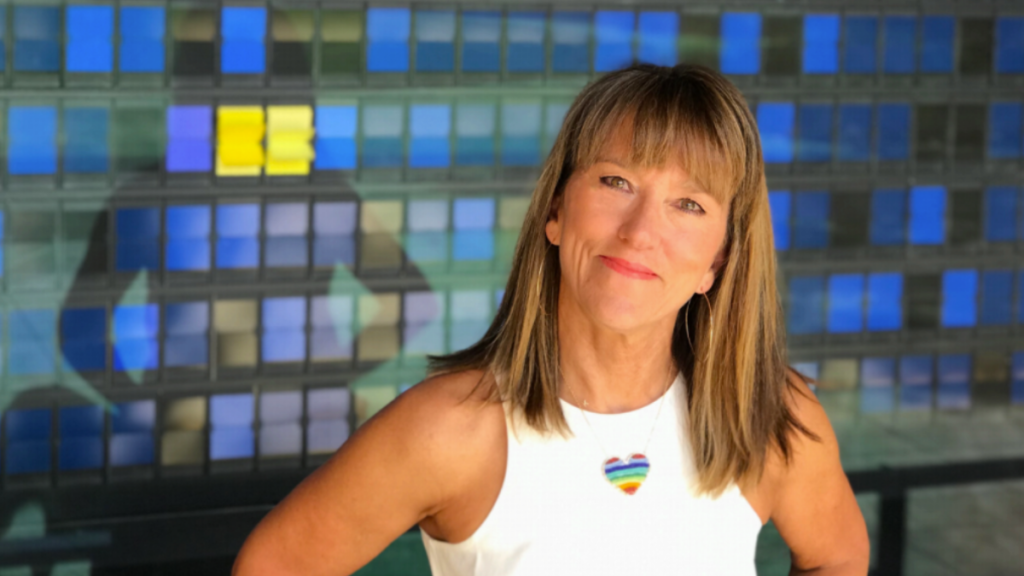Women can experience discrimination across many industries.
Sports isn’t an expectation.
Enter Women in Sports Tech.
Women in Sports Tech otherwise known as WiST is the only workforce accelerator for diverse talent at the intersection of sports and tech.
They design innovative programs, and original content, and curate a global community for women and employers to provide career support and growth opportunities that drive business innovation and success.
Founder Marilou McFarlane has worked in the sports tech industry for several years and is a pioneer in the space.
Now, she’s leveraging her network, and know-how to inspire the next generation of women in the industry.
In this interview with Marilou McFarlane, we discuss why she started WiST, the challenges of raising capital as a non-profit organization, and the impact the company is making across the sports ecosystem.
Hello, who are you and what is the name of your company?
I’m Marilou McFarlane, an experienced and visionary startup leader and accomplished entrepreneur. I’ve held various C-suite roles in sports tech startups, mostly focused on athlete and coach performance, for 14+ years.
I’m the founder and CEO of Women in Sports Tech (WiST) created in 2017 to address the needs of employers in sports tech to build diverse talent pipelines and cultures of inclusivity and for students to get meaningful summer internship experiences and learn about this industry.
Going beyond talent alone, I feel it’s important to emphasize the importance of relationships built on immense mutual respect and collaboration as core to innovation and ultimate success.
I was so often the only woman in the room in this industry, every meeting, every investor meeting, every conference, “The Lonely Only” as it were.
Yet the men I met for the most part genuinely wanted to find a way to identify diverse talent.
At the same time, the brilliant young women I met had no idea of the vast array of opportunities that exist in our exploding industry.
I’m generally a woman of action, so I created WiST to create tangible growth opportunities for all. It’s hard to complain about a situation if you aren’t willing to get your skin in the game and do something about it.

What was the process of getting the company off the ground?
After a lot of research into other organizations in this space, and with my MVP (minimally viable plan) in place, I proceeded to build the foundation for what WiST is today.
I’ve, for whatever reason, never been afraid to put something I believe is meaningful out there, fly it up the flagpole to seek validation so to speak.
I had the support and assistance of two brilliant young women, both of whom had also been college student-athletes, Nina Luker and Jamie Kent, which inspired me to get it going.
I felt like I had nothing to lose to forge ahead.
Our flagship initiative is the WiST Fellowship program, inspired by several pivotal personal/professional experiences. I had a summer internship with Turner Broadcasting before my senior year at the University of North Carolina that changed my life.
They hired me when I graduated with my business degree and moved me from Atlanta to San Francisco to become a Regional Marketing Manager to cover seven states, and I never looked back. I mean, running to the Golden Gate Bridge every day and flying all over the West Coast on an expense account to do work I enjoyed with people embracing the cable TV disruption taking place.
Also, Nina had the experience of a “Carolina Blue Honors” internship with Varsity Sports in South Africa, that involved a grant for a summer project – the outline of which became our WiST Fellowship program.
We know it’s harder for some than others just to get in the door with such incredible work experiences, so we created the program to offer growth opportunities, especially for those either unaware of the opportunities or lacking the confidence to apply. In every way, we have built access to experiences and a network of support that I wish I had much earlier in my own career.
About 5 years ago we launched the WiST NETWORK, which is the single source for diverse hiring in our industry, offering a suite of solutions for our partners to diversify their talent pipelines. Then 3 years ago we created our Fireside Chat: Culture Matters to help our partners talk about how inclusivity and diversity enhance overall performance and success with their employees.
Armed with a press release, a website, and some WiST business cards I went to CES in January of 2018, where I knew many of the attendees already, and met so many other awesome others (to be clear, nearly all white men). I had also sought out SportTechie to introduce WiST, and to their credit, they jumped right on board with a story that helped build lots of early credibility.
By February, we had a board, a first corporate partner, a donation from IBM Sports, and a plan for 3 WiST Fellowships for that first summer. I’m so proud that one of the stars of this first cohort, Anna Resman, did her internship with N3XT Sports, including travel to Barcelona, and now works as VP of Strategy at the wildly successful TeamWorks. Nina now works there too, as fate has it, along with one of our star former employees Emma Henzes.
We’ve continued to learn and iterate on all that we do. We read the room very well. These days we don’t use the words “diversity”, “equity” or “inclusivity” yet focus on the words “recruitment” and “retention”, each of which massively impacts business success. Businesses will not innovate successfully with a bunch of homogenous people sitting around the table nodding at each other in agreement and a culture where no one feels loyalty to their manager or like they belong on the team.

How is the company doing today and what does the future look like?
As a non-profit specializing in diversity, equity, inclusivity, and belonging in our industry, the current backlash against DEI for sure is a threat to the work we do as I mentioned.
Yet, we have numerous corporate partners who deeply believe in our mission and support us, so we carry on!
Despite so much uncertainty throughout our country and our economy right now, we are motivated to continue as we know the impact we are having.
Some metrics from last year alone include:
WiST Fellowship program
- 115 total Fellows as of the Summer of 2024
- Over 66 sports tech employers have hosted Fellows
- 84% of former Fellows are working in the sports tech industry, post-graduation
Community Social Influence:
- 500K+ impressions via WiST social networks
- 5,300+ subscribers
- 47% open rate on newsletters
In-Person Community Influence:
- Presented at 11 industry events including the NBPA Performance Summit in Malaga, Spain, and the USOPC Performance Analytics and Tech Summit in Colorado Springs.
Fireside Chat: Culture Matters:
- Numerous Fireside Chats to employees of our partners
- Engagement and education for thousands who work in our industry
Notable new partnership established: Sports Business Journal
WiST NETWORK Results:
- 4,000+ candidates applied to open roles from the platform
- 1,000+ candidate profiles
- 33 corporate partners are Featured Employers with select job listings
- Be Discovered newsletter exclusively for community members
Through starting the business have you learned anything particularly helpful or advantageous?
I have always embraced change, and also again, have never been afraid to try something new. I love looking for new ways to solve problems – and I hate inefficiencies, as my team will tell you! It’s also important to quit an idea you try early on, don’t dwell on it when all signs point to it “not working”.
For example, we almost went to great expense to add a WiST Community Platform, white-labeled on top of an expensive proprietary community software product.
We went to great lengths to explore whether or not this would solve our customers’ pain points, especially because it was a large investment for our startup non-profit.
Instead, we decided to go with a private LinkedIn Community Group and realized our people don’t want yet another point of contact.
I constantly read to learn and got so much from Adam Grant’s book “Think Again”. I don’t subscribe to the concept of “move fast and break things”, yet for sure embody the “fail forward fast” concept of not beating yourself up when something fails or you make a mistake.
Learn from that mistake, share it with other leaders as an experience you learned from if it’s relevant to them, and don’t make that same mistake twice!
This is one of the reasons I love mentoring, advising, and coaching founders – to try and steer them away from landmines I’ve learned about myself the hard way.

What advice do you have for founders looking to raise capital?
Focus on building your business first!
Developing and refining your MVP, proving your business model works (at least until you learn more and can pivot as necessary), building relationships with your customers (who will forgive you when you make mistakes, and you will), and generating revenue to the point that can show growth.
In my first startup, I did all of this, developed our product that resonated with over 50,000 customers, generated $100K in revenue in the first 6 months, and raised nearly $1M in seed from friends and family.
I checked all the boxes that I know venture capital seeks, and was unaware that in 2010, less than 2% of venture capital went to female founders, much less women over the age of 40.
I had one VC tell me, “If it was easy, more women would do it.” And that’s one of the tamer things said to me.
Having sought and raised meaningful venture capital with other startups I’ve led over the last 12 years, I’m still triggered by my negative experiences of representing my thriving business, so dependent on growth capital and the judgment of those who have no experience as a founder of a startup.
The path for a founder is never easy, yet VCs are leaving money on the table if the broader startup ecosystem isn’t supported.
“Women founders tend to build businesses that generate more revenues, create higher job growth, dream bigger, and execute better. Research by BCG shows that the average investment in companies founded or co-founded by women was half that of what is raised by only male-founded companies.” (Forbes November 2023)
Are there any particular tools, software, or resources you use to be more productive?
We are a very startup-y organization, somewhat unusual for non-profits.
We use Slack, Asana, Google Drive, Gusto, QuickBooksOnline, and Zoom to pretty much anchor all the activities of our business.
What advice do you have for founders trying to build a team and hire talent?
First of all, don’t overhire! The biggest mistake I made with my first startup.
You must get comfortable wearing lots of hats and make sure your founding team has complementary skills to your own and can also wear multiple hats. You should run as lean and mean as you possibly can.
Conserve cash for a rainy day, there will be one. As you need to make new hires, make it people with different lived experiences who will bring ideas and execution to the table that will lead to greater success. Seek the best talent you can find, that isn’t a clone of anyone else on your team.
Where can people find out more?
They check out our website https://www.womeninsportstech.org/ or connect with me on LinkedIn.

